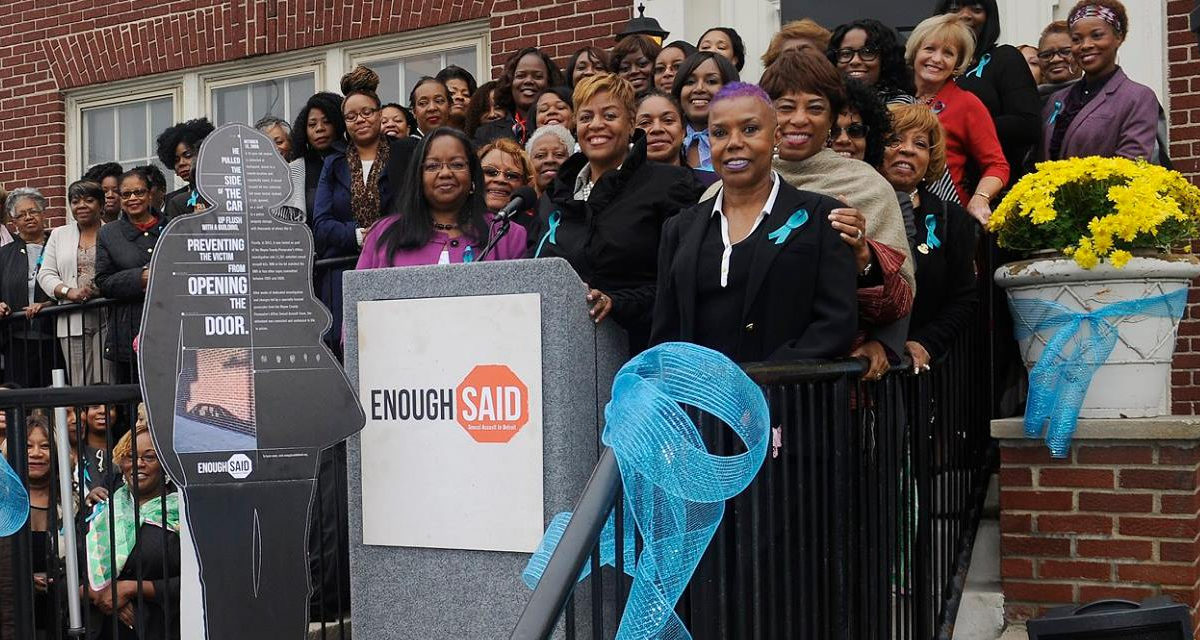The Wayne County Prosecutor’s Office is “almost done” reviewing forensic evidence from rape in sexual assaults — also known as “rape kits” — according to a report the Detroit Police Department’s Special Victims Unit delivered to the Board of Police Commissioners (BOPC) last month.
The Prosecutor’s Office reviewed 11,137 of 11,341 untested rape kits that were backlogged between 1984 and 2009. The untested kits became a huge scandal for Detroit when they were discovered in a police department warehouse in 2009.
According to a monthly report from the Prosecutor’s Office, 4,029 investigations have been closed and 224 convictions have been made as a result of the backlogged kits being tested. Many of the cases involved rapists who attacked more than one woman, hence the disparity in convictions and investigations, Wayne County Prosecutor Kym Worthy said.

Worthy said testing the kits helps lower the number of sexual assaults in Detroit by getting serial rapists off the streets.
“The DNA from these sexual assault kits and evidence that’s entered into the database can help solve murders, it can help solve robberies, so it’s going to help a lot of different clients besides just sexual assault survivors,” Worthy said.
Worthy said processing evidence also helps police departments across the country.
“Rapists don’t stop at Eight Mile Road, so we found that rapists that were found in 2009 in Detroit have connections to crime scenes in 40 states all together, including Michigan,” she said.
Worthy has been instrumental in getting the unopened rape kits tested since they were discovered in 2009. Worthy leads the Detroit Sexual Assault Kit Project, which submits the kits to a forensic laboratory. Two years ago, Worthy helped secure $1 million in federal funds to help get the backlogged kits reviewed.
Detroit police are currently investigating 199 cases from 2009 as a result of testing the uncovered rape kits. According to the Prosecutor’s Office, another 155 cases are awaiting investigation.
Worthy said she hopes this can give sexual assault survivors a renewed sense of confidence in the cirminal justice system.
“We know through research that, unfortunately, oftentimes victims of these types of crimes don’t want to re-engage with a police department that further violated them by ignoring their (rape kits) and ignoring the evidence of their crime,” she said.
John Serda, a DPD captain in the Special Victims Unit, spoke about the rape kit project during the Aug. 19 BOPC meeting. Serda said a lot of sexual assault survivors simply don’t want to talk to police.
“One of the ways we try to help them is we get them in touch with our social workers immediately so that they’re dealing with somebody that’s non law enforcement and has a background in this type of work,” Serda said.
The untested rape kits scandal brought to light cultural issues that existed within the Detroit Police Department, specifically around not believing victims who reported assaults. Serda said it can be hard to get people to trust the police.
For the rest of the story, go to BridgeDetroit’s website.





